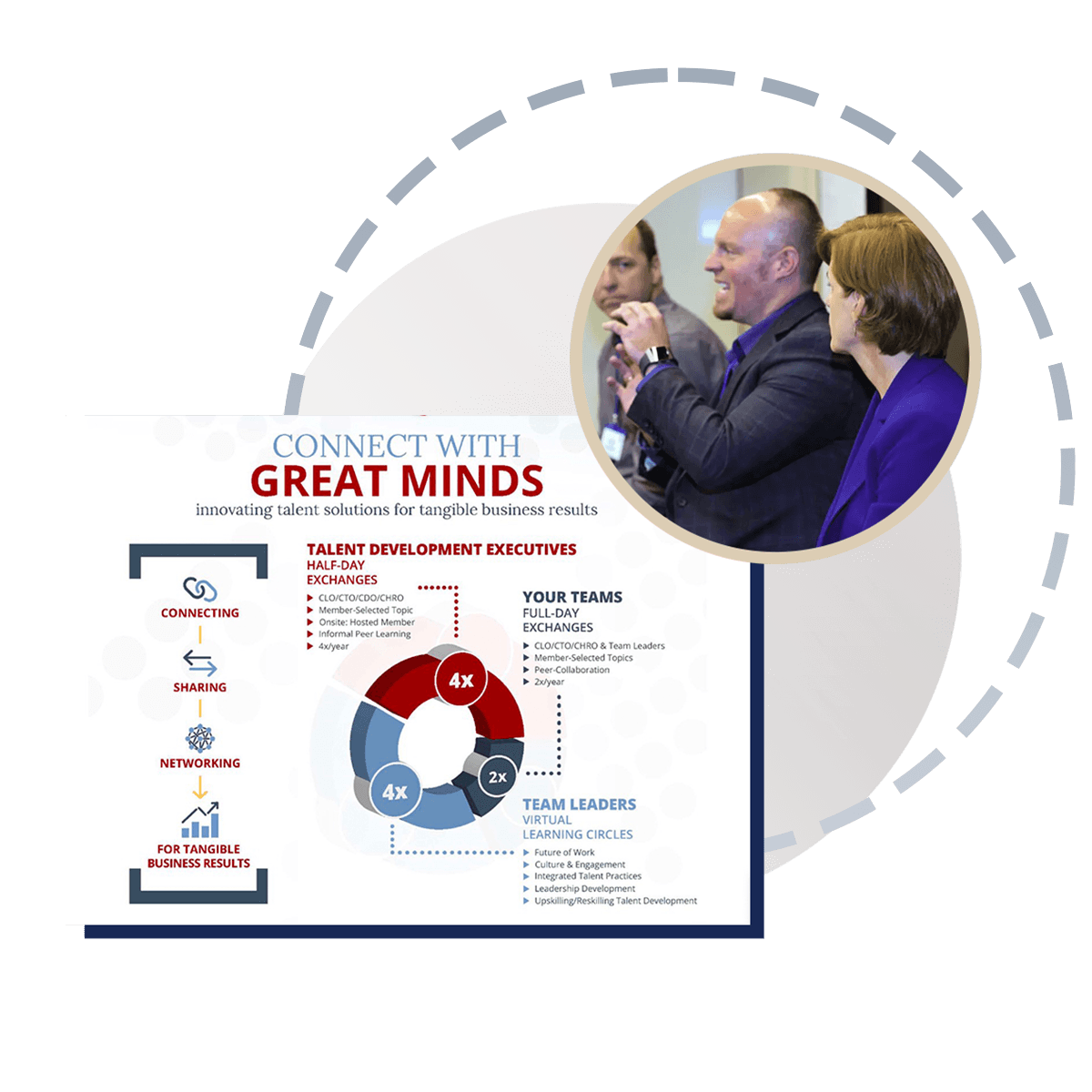This highlight video is from October 31, 2025 session Kick-off: ELE Executive Innovation Sprints | High-Performance Coaching with AI
This innovation sprint kickoff provided a powerful launch to ELE’s new Executive Innovation Sprint model — a peer-powered framework for co-creating solutions that matter.
“We’re not talking about innovation — we’re doing it together.” — Dirk Tussing
At the October 20th Talent Development Conference, this idea took root. In our follow-up sprint, leaders across industries explored how AI can transform coaching — not by replacing the human connection, but by scaling it.
The first sprint challenge tackled the performance gap that happens after learning: why employees so rarely apply what they’ve learned once the workshop ends.
“Define the problem well, or the solution won’t be usable.” — Deepa Kartha
Using a defendable-problem framework, participants surfaced a shared reality:
-
Post-learning coaching is inconsistent and depends too much on manager availability.
-
Limited time and unclear expectations erode follow-through.
-
The opportunity? Use AI to extend coaching capacity and deliver personalized, real-time feedback when managers can’t.
“Learning ROI is lost when post-learning coaching doesn’t happen.” — Nicole DeFalco
The conversation reframed AI as a performance enabler, not a threat — a way to make feedback timely, scalable, and rooted in real behavior change.
🔍 Key Takeaways for Talent Development Leaders
-
Co-create, don’t outsource. Innovation accelerates when peers design and test solutions together, not when we wait for vendors.
-
AI scales the human touch. Generative AI extends coaching capacity so managers can focus on the conversations that matter most.
-
Close the post-learning gap. Coaching after training is where behavior change and ROI actually happen.
-
Start with a clear problem. Great innovation begins with defining the right problem — not chasing trendy solutions.
-
Experiment, measure, and share. Treat every sprint as a learning lab to test, refine, and spread what works.
⚙️ Practical Actions to Apply Now
-
Run a 2–3 week mini-sprint inside your organization to tackle a specific challenge like improving post-learning application.
-
Audit your feedback flow. Identify where and why coaching stops between training and performance.
-
Pilot AI coaching tools. Test digital nudges or conversational AI to provide scalable, real-time feedback.
-
Measure what matters. Track engagement and behavior change before and after coaching interventions.
-
Capture and share learnings. Document insights to strengthen your organization’s innovation and coaching culture.


